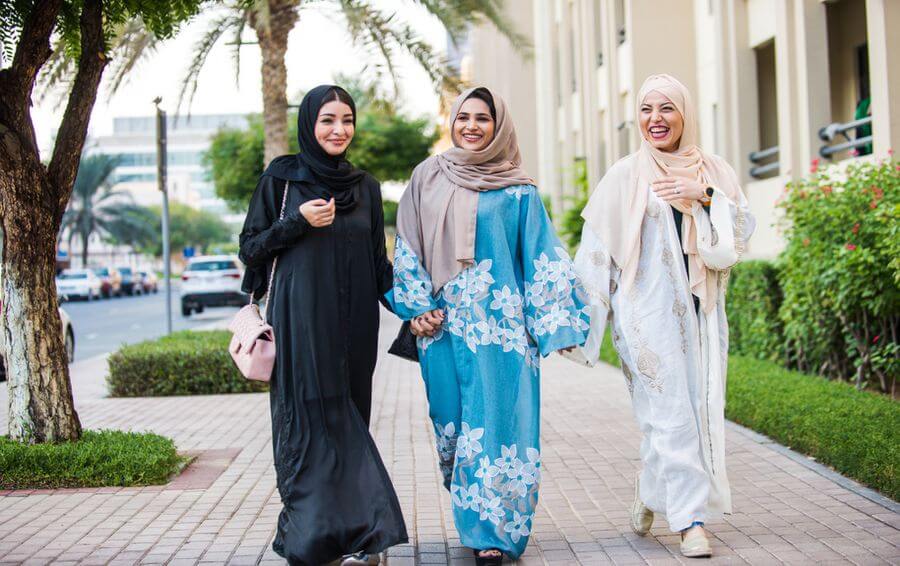Eid is more than just a religious occasion—it’s a vibrant expression of faith, joy, and unity. Across the world, millions of Muslims dress in their finest traditional attire, embracing the cultural richness that makes this festival truly special. From South Asia to the Middle East, Africa to Europe, Eid fashion reflects a beautiful blend of heritage and contemporary elegance.
The Significance of Dressing Up for Eid
Wearing new and elegant outfits on Eid is a tradition deeply rooted in celebration and gratitude. It’s a way of embracing the festive spirit, with families often selecting their outfits well in advance. Social media platforms flood with “Eid fit” posts as people proudly showcase their attire, highlighting the importance of style and cultural expression. Whether it’s a delicately embroidered kurta, an elegant abaya, or a flowing caftan, Eid fashion is a testament to the diversity and unity of the Muslim world.
A Glimpse of Eid Attire Around the World
Every region brings its own charm to Eid fashion, combining traditional craftsmanship with modern influences.
South Asia – Pakistan, India, and Bangladesh

Eid fashion in South Asia is known for its intricate details and rich colors. Men often wear shalwar kameez, paired with stylish waistcoats or sherwanis, while women opt for lehengas, ghararas, or beautifully embroidered shalwar kameez in soft pastels or bold jewel tones. Dupattas with embellishments add a regal touch, completing the festive look.
Middle East – UAE, Saudi Arabia, and Qatar



In the Middle East, elegance and tradition go hand in hand. Men wear thobes (long white robes) with keffiyeh (traditional headscarves), reflecting a classic and refined style. Women dress in flowing abayas, often made from silk or chiffon, adorned with delicate lace or embroidery, paired with gold jewelry to enhance their look.
Palestine

Austrlia
Young Muslims from diverse Islamic cultures celebrate Eid-ul-Fitr in Australia dressed as they please.

Southeast Asia – Malaysia, Indonesia, Philippines


In Malaysia and Indonesia, baju kurung (for women) and baju melayu (for men) are the go-to outfits, balancing modesty with sophistication. The songkok (a traditional cap) is a signature accessory among men. Meanwhile, Muslim women in the Philippines embrace long robes and colorful hijabs, blending cultural diversity with Islamic traditions.
Central Asia

Eid fashion in Central Asia is a perfect mix of cultural heritage and modern style. Women wear atlas dresses, made from vibrant silk with intricate designs, while men don chapan (long robes) with embroidered belts. Traditional jewelry and headscarves complement their elegant look.
Bosnia and Kosovo

Muslims in Bosnia and Kosovo blend contemporary styles with historical influences. In Kosovo, young boys wear waistcoats embroidered with gold thread, and women opt for modest yet fashionable outfits, often inspired by Ottoman traditions.

Africa
African Eid fashion is a stunning display of bold colors and elaborate patterns. Moroccan men favor djellabas, while women wear caftans with golden embroidery. In Senegal, boubous, loose-fitting robes with artistic details, are widely worn. In Libya, tribal costumes with unique patterns make a striking appearance during Eid festivities.
Kenya

Libya

Senigal


Ghana

Moracco

A Celebration of Diversity Through Fashion
Despite the regional variations, the essence of Eid fashion remains universal—grace, modesty, and festivity. Whether it’s a Pakistani shalwar kameez, a Moroccan caftan, or a Malaysian baju kurung, each outfit carries a legacy of tradition and cultural pride.
With the influence of social media and global fashion trends, Eid attire continues to evolve. Designers and influencers are reimagining traditional styles with modern touches, making the celebration of Eid even more stylish and inclusive.
Eid is not just about prayers and feasts—it’s a reflection of identity, culture, and shared joy. No matter where it is celebrated, the beauty of Eid attire serves as a powerful reminder of the rich traditions that connect Muslims across the globe.

